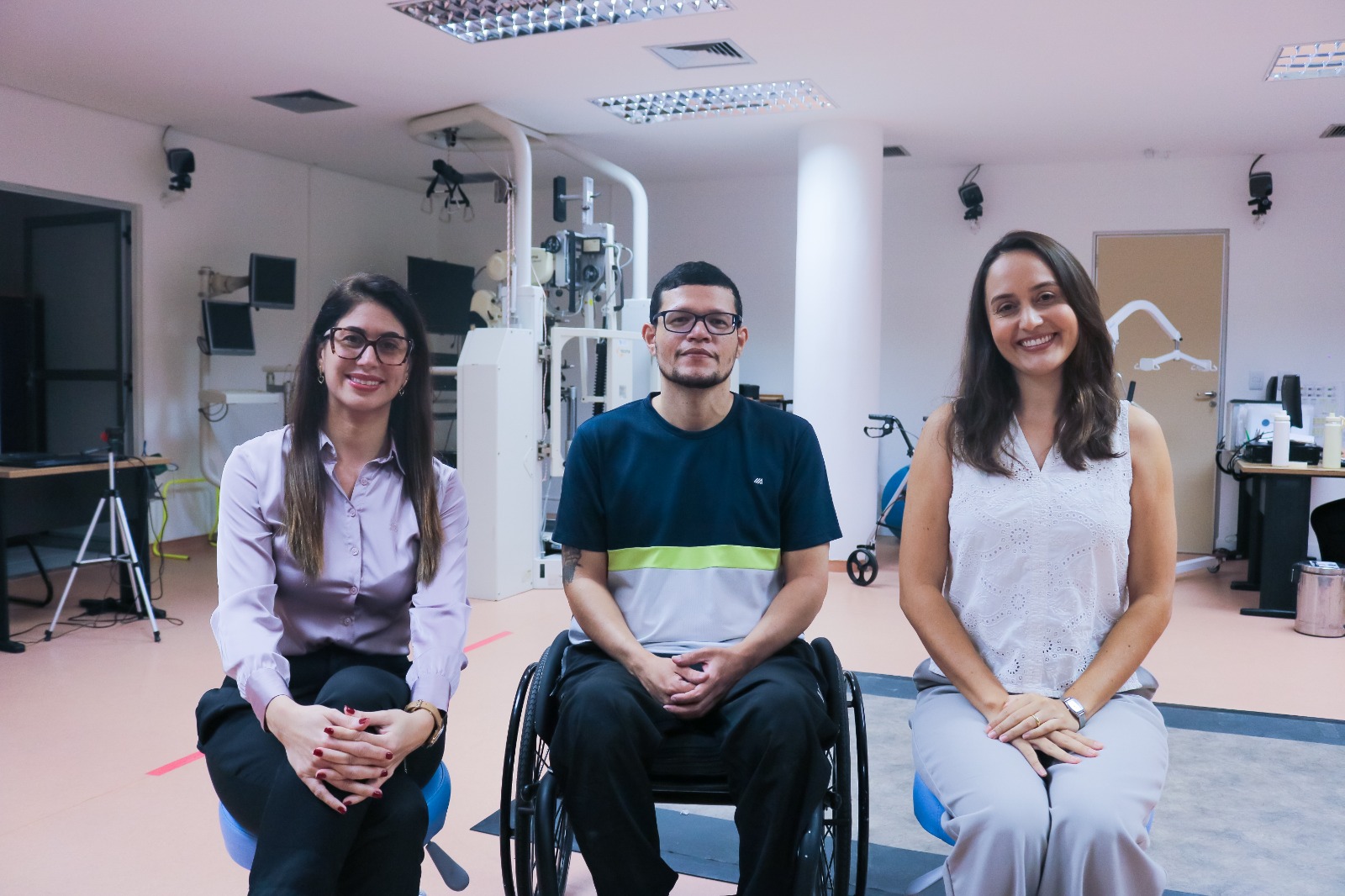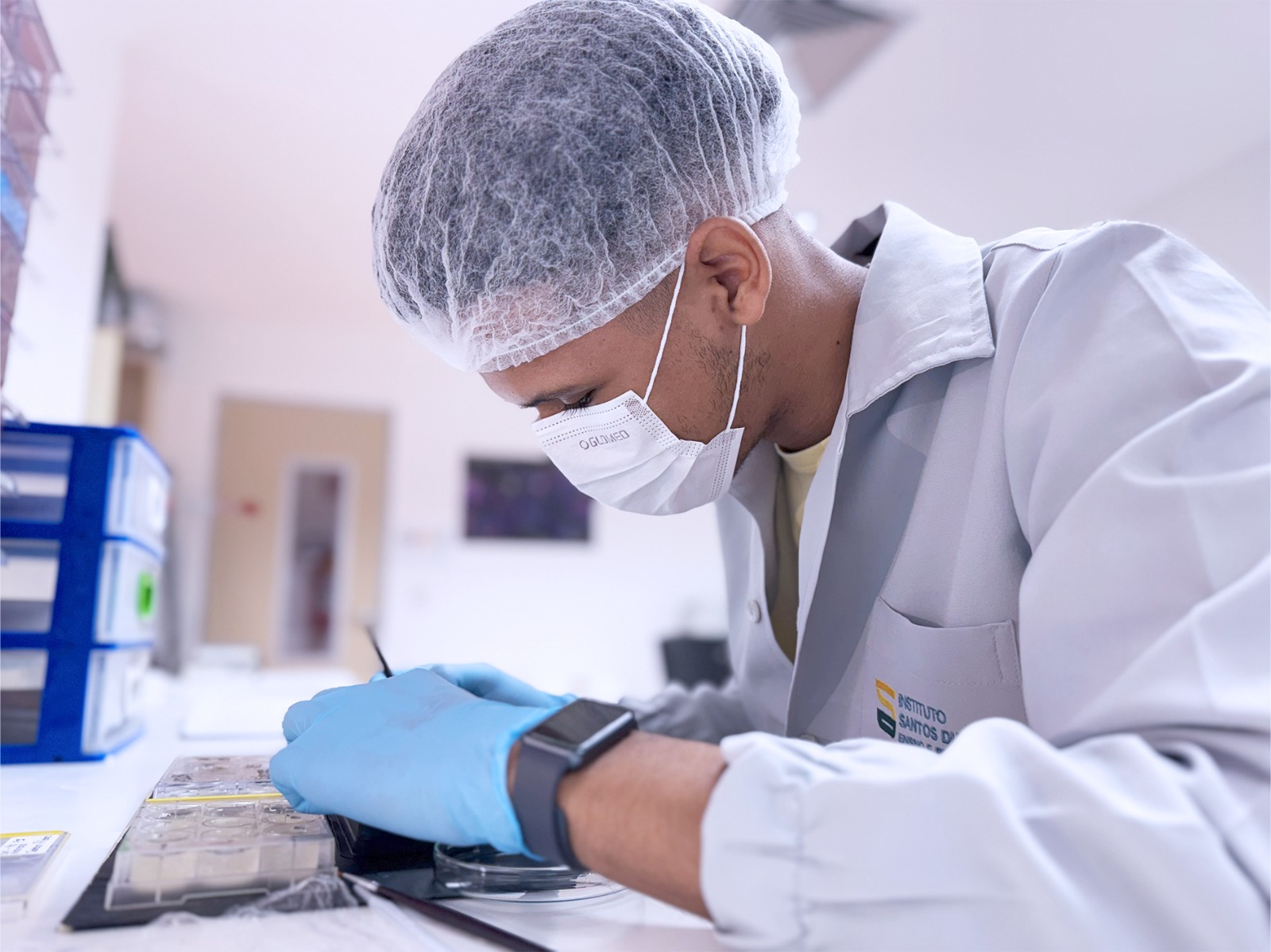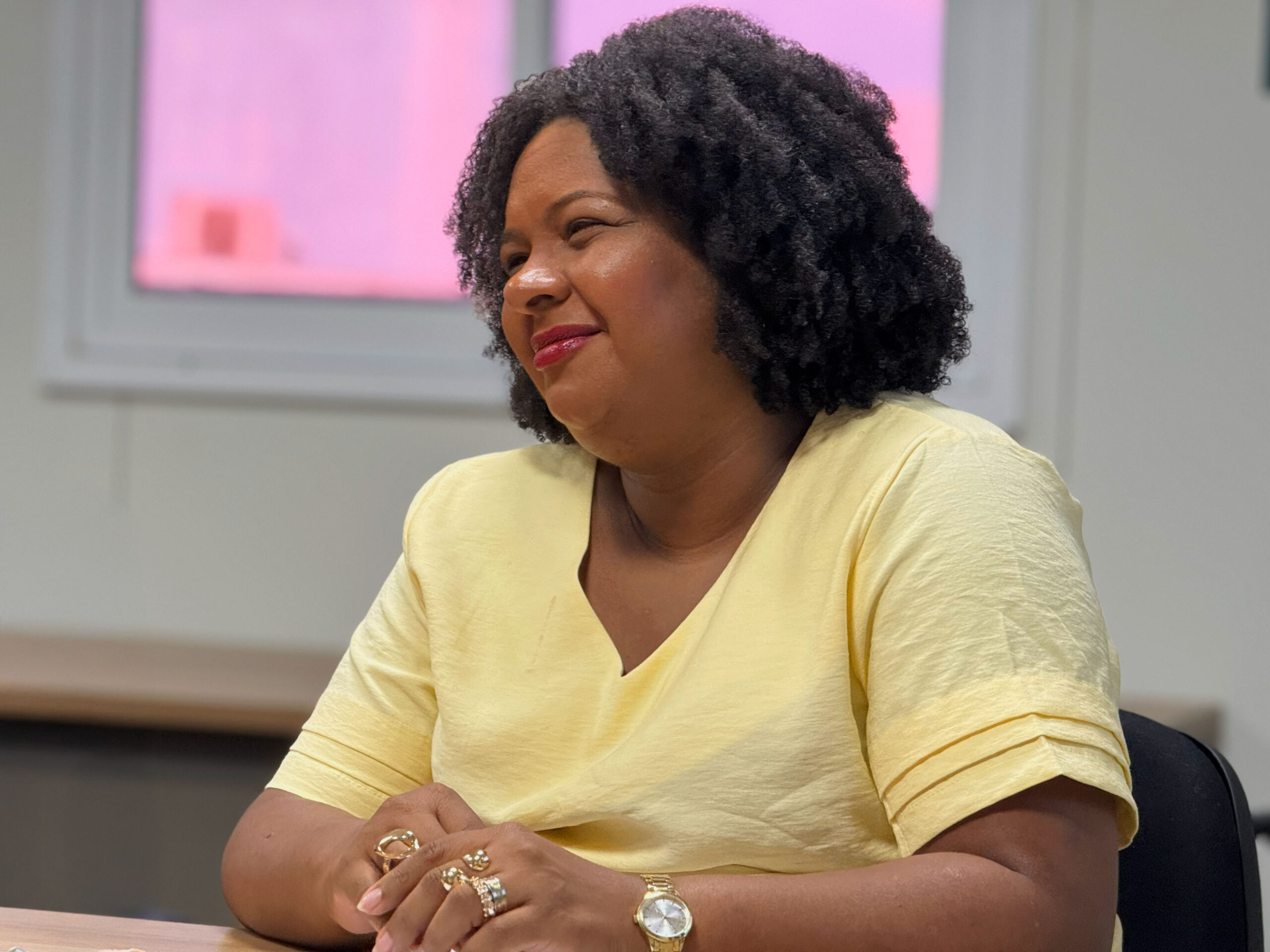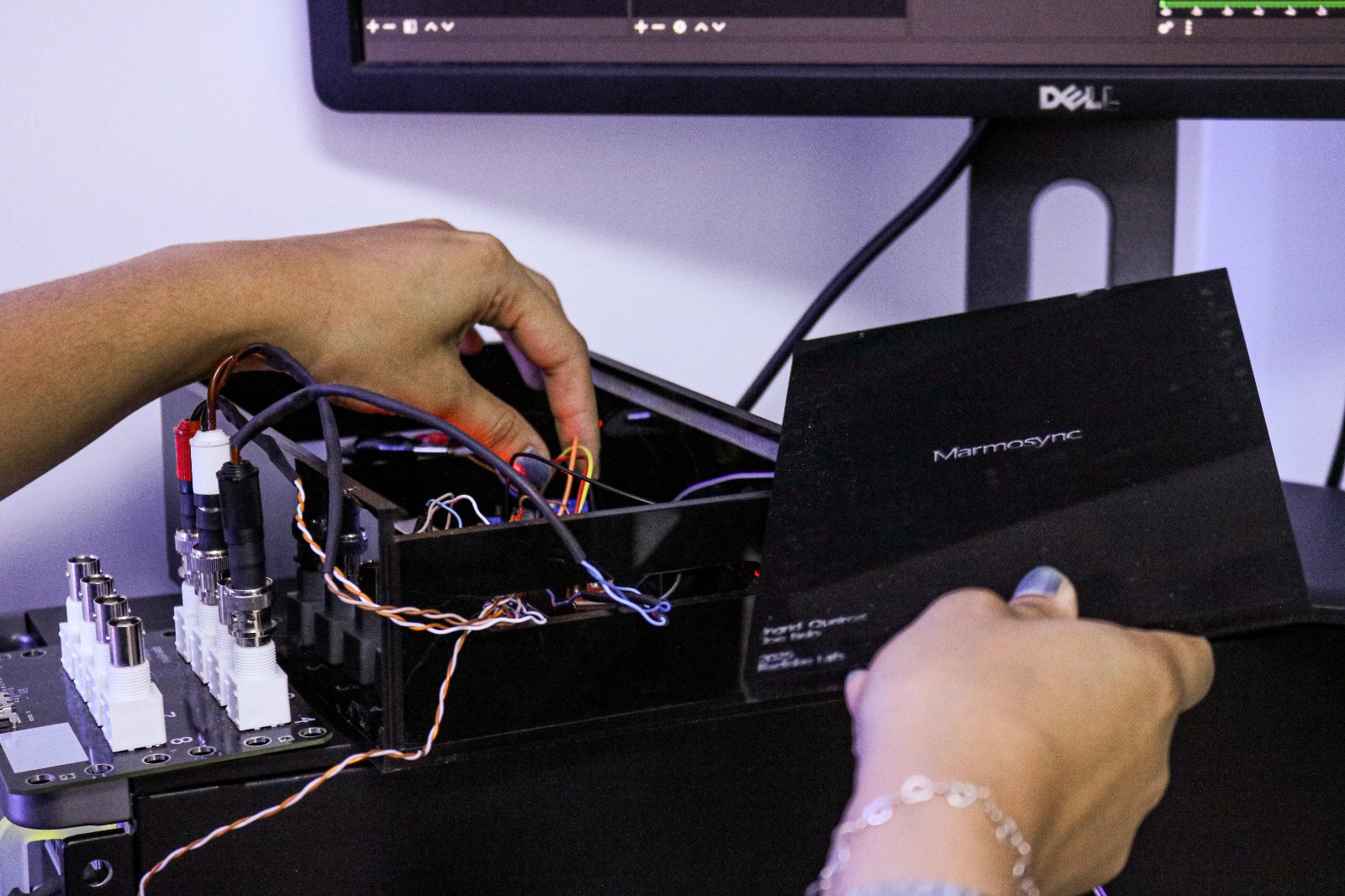The resident social workers of the Residency Program in Health Care for People with Disabilities (RESPCD) of the Santos Dumont Institute were awarded at the 25th Research Seminar of the Center for Applied Social Sciences of the Federal University of Rio Grande do Norte (CCSA/UFRN), which took place in September, and had as its theme “The controversies of innovation and technology in the world of work”.
Camila Rocha, Eloyse da Silva and Inaara Franco received the award for Best Article of the event for their work “Particularities of the work of social workers in a Specialized Rehabilitation Center for People with Disabilities”, presented at the Working Group on Social Issues, Social Policy and Social Service.
The paper seeks to reflect on the work of social services in a Specialized Rehabilitation Center, highlighting the particularities of this environment. “Reflecting on the work of Social Workers in socio-occupational spaces, such as in health services, is a way of enhancing their performance beyond immediate and expedited responses,” explains resident social worker Camila Rocha. She emphasizes that analyzing the professional routine is part of the critical-intervention process of this profession, which requires a broad reading of reality, with a view to societal transformation. “Therefore, reflecting on the work in CERs, recent spaces of Social Service activity, can also contribute to visualizing the need for these professionals to be included in the defense of the rights of People with Disabilities,” she adds.
The controversies of innovation and technology in the world of work
Regarding the general theme of the seminar, which deals with the contradictions related to technological advances and their implementation in the world of work, Inaara Franco states that, despite the great usefulness of these technologies for the performance of various functions, a broad view of the issue is necessary. “The insertion of technologies in the workplace can be a very useful tool when we think about shortening distances, real-time communication and data compilation. On the other hand, it can also be a factor in deepening barriers to access to rights, both for workers and users,” says Inaara.
This has repercussions for both professionals and people who need technology to access certain services. One example that deserves reflection is the extension of the work environment to the home environment and, consequently, working hours, provided by technology. Another point is the situation of socioeconomic vulnerability of part of the population, which makes it difficult to access these technologies and, consequently, to certain services. “Daily life and professional practice reveal that Information and Communication Technologies make it difficult for users to access services, such as requests to apply for the Continuous Benefit Payment - BPC, retirement and temporary disability assistance. Therefore, reflecting on these issues is reflecting on work in the present time,” he highlights.
ABOUT ISD













